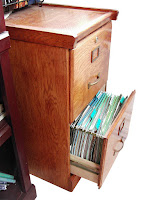This
post contains affiliate links. All products mentioned on this page were
selected because AARI believes our readers will find them interesting,
meaningful and useful. AARI recommends helpful books and other products
regardless of whether they are part of an affiliate program the blog participates
in. For more information, read our Editorial Policy.
 |
| Make inclusion and acceptance a priority this Valentine's Day. Photo by Amanda CC BY 2.0 via Wikimedia Commons |
Valentine’s Day is the perfect occasion for parents and
educators to teach children with disabilities and their typically developing
peers some valuable life lessons about kindness, inclusion and acceptance.
Everyone wants and deserves to feel respected, valued and
welcomed. This Valentine’s Day is an opportunity for parents, teachers and
other influencers in the lives of children, teens and young adults to
positively impact some of the most vulnerable members of our society and to
make our world a better place by engaging in a few small but powerful acts that
can have a long-lasting positive effect.
Parents, you can start this Valentine’s Day off the right
way making sure your child takes enough of whatever special tokens or treats
they intend to take to school for their entire class. Explain that exclusion is
not nice and that it hurts to feel alienated, excluded or left out. Tell your
child you want them to make everyone they encounter feel respected and valued.
Plan ahead to make sure your child is equipped to engage in
inclusive interactions with their fellow students. If you aren’t sure about how
many classmates your child has (after all, class rosters do change to some
extent throughout the school year), ask your child’s teacher for a list of
names to include on Valentine’s cards and a count to make sure you provide
enough treat bags. Remember, that some of your child’s classmates may spend
some part of their school day in special classes. Make sure your child includes
all of their classmates in their celebration plans, even those that don’t spend
the entire day in a general education classroom. Be sure to familiarize
yourself with and fully comply with all classroom and school rules regarding
sending edible treats.
Teachers, make the most out of this important opportunity
for teachable moments about diversity, inclusion, acceptance, tolerance,
compassion, respect and kindness. Teachers, and their students, encounter all
kinds of differences on a daily basis. It is absolutely critical to reinforce
the importance of treating every human being with kindness and making everyone
feel welcomed at all times. You can do this on Valentine’s Day by bringing extra
cards, stickers, treats and supplies for making treat bags for students who may
not have included all of their classmates on their distribution lists or who
may not be able to afford to bring their own goodies to share.
Teachers can also
incorporate books that promote acceptance, inclusion, tolerance and kindness
into their curriculum as bibliotherapy, read alouds during literacy instruction
or as part of character education. Some great books for teachers (and parents)
to read and discuss with children around these topics are:
Accept and Value Each Person by Cheri J. Meiners
A Rainbow of Friends by P.K. Hallinan (available in an
English and Spanish Edition)
All Kinds of Friends, Even Green! by Ellen B. Senisi
Be A Friend by Salina Yoon
Be Kind by Pat Zietlow Miller
Be Good to Eddie Lee by Virginia Fleming
Danny and the Merry-Go-Round by Nan Holcomb
Extraordinary Friends by Fred Rogers
How to Be A Friend: A Guide to Making Friends and Keeping Them by Laurie
Krasny Brown
Say Hello by Jack Foreman
Since We’re Friends: An Autism Picture Book by Celeste Shally
Two Speckled Eggs by Jennifer K. Mann
You Me and Empathy by Jayneen Sanders
I highly recommend
that teachers who work with students on the autism spectrum in an inclusion
setting read Making Inclusion Work for Students with Autism Spectrum Disorders:An Evidence-Based Guide by Dr. Tristram Smith. Chapter 11, which is about peer
interaction, is particularly useful when developing strategies for creating
seamless inclusion in the classroom.
School leaders and educators can collaborate to make
inclusion a core value for their entire learning community by having students
participate in activities that will give them opportunities to act with peers.
For example, students in general education and specialized classrooms can work
together to create theme bulletin boards, create greeting cards and exchange
them with students they do not typically interact with, create a peer
ambassadorship program wherein exemplary general education students would “adopt”
a friend with special needs and help them to navigate the social landscape and
develop friendships with typically developing peers, and encourage general
education students to spend time with students with special needs during lunch
and recess. The idea here is to create a school culture, climate and
environment where inclusion and acceptance is the norm.
School
and district level leaders can learn some valuable lessons about creating
integrated, socially just schools and districts in Meeting the Needs of Students of ALL Abilities: How Leaders Go Beyond Inclusion 2nd Edition by
Colleen Capper and Elise Frattura. This practical resource contains specific
strategies for creating environments wherein students of all abilities can
thrive.
If everyone works together and does their part, Valentine’s
Day can easily become ValenKIND’s Day. Even better, it could become the
catalyst for creating an ongoing culture of kindness.


